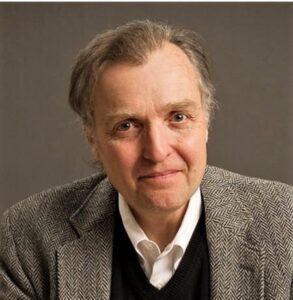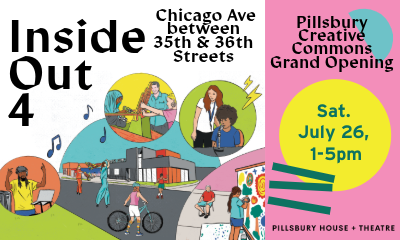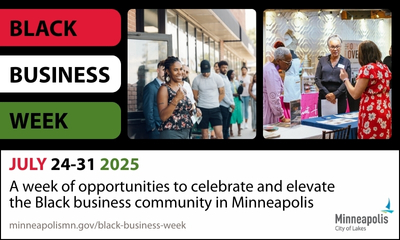
Cam Gordon
BY CAM GORDON
Another city election year is here. Campaigning has already started, and at least two independent political committees are already raising money to influence the results.
Since the Supreme Court’s Citizens United decision in 2010 – which enabled unlimited expenditures by special interest groups – wealthy donors have been spending more and more money to influence elections across the country, including in Minneapolis in the last few years.
While Minneapolis may be called a one-political-party town, it is becoming a two-political-committee town. Two registered committees, All of Mpls and Minneapolis for the Many, are already collecting contributions and leading campaigns.
In an email in December, All of Mpls called for donations to help them “build the war chest”, the need to fight back and win council seats.
Based on past donors, with both mayoral and all city council seats on the ballot, they could spend as much as $1 million dollars this year.
In the 2023 municipal election, with no mayoral election, the committee reported spending $708,341 in support of certain candidates, including $148,281 in support of Ward 8’s Andrea Jenkins, who narrowly won.
All of Mpls received early funding of $1,229,037 from a now defunct group called Plan for Progress that was started in 2021 with a $1,353,500 contribution from the Minneapolis Chamber of Commerce.
Its top 2023 contributors, who donated at least $10,000, include the Minneapolis Chamber again with a $150,000 donation, the Bloomington-based MN Multi Housing Association who gave $90,000, and the International Union of Operating Engineers and the North Central States Carpenters PAC who donated $55,000 each. Alida Messinger, from St Paul and Wayzata’s Vance Opperman each gave $ 50,000. Jeff Werbalowsky, from Minneapolis, gave $15,000. Charlie, Chris, Robert, Tom and William Pohlad, from Minneapolis, donated $10,000 each, as did the LGBTQ Victory Fund Federal PAC from Washington, DC, as well as Kathleen MacLennan from Edina, and Minneapolitans Paul Reyelts, Karen Sternal, and Peter Vorbrich.
According to state filings, these combined with donations ranging from $200 to $9,000, brought the total contributions to All of Mpls in 2023 to $963,295.53.
Last year they sent out regular emails supporting Mayor Jacob Frey and criticizing what they called the “DSA-aligned,” “radical left city council majority,” and a “do-nothing council majority (consisting of Council Members Payne, Chughtai, Wonsley, Ellison, Osman, Cashman, Chavez, Koski, and Chowdhury).”
The not so wealthy group, Minneapolis for the Many, collected $213,714 in 2023. They had fewer donations of $10,000 or more and none over $60,000.
Their top donor was Movement Voter PAC Minnesota based in Northampton, MA, with a $60,000 contribution, followed by the Take Action PAC and Faith in Minnesota Fund (both based in St. Paul) who both gave $30,000. The State Council of UNITE HERE Unions, based in Minneapolis, contributed $15,000 and the American Federation of Teachers (Washington, DC), Local 59 Political Fund (Minneapolis), and the UNITE HERE TIP State and Local Fund (New York) contributed $10,000 each.
In their announcement about an upcoming fundraiser, Minneapolis for the Many said, “we’re aiming even higher in 2025: expanding the progressive majority and electing a new Mayor of Minneapolis.”
While candidates are required to abide by contribution limits of $600 for city council and $1,000 for mayor and other at-large offices, that is not the case for political committees who make independent expenditures. For them there are no spending limits.
Independent expenditures refer to money spent “expressly advocating the election or defeat of a clearly identified candidate” without the consent, authorization, cooperation, request or suggestion of any candidate or any candidate’s agent.
This arrangement, now becoming common practice in city elections, offers wealthy individuals or well-funded organizations, like a chamber of commerce or a large labor union, a way to donate, without limit, to support or oppose any and all candidates they choose.
In the city, candidates not backed by one of the well-funded groups may find themselves at a disadvantage. Some may feel pressure to modify their campaign message or priorities to win favor with one of the groups who have “war chests” ready spend on them.
Similarly, as wealthy individuals and privately funded organizations, including many located outside the city and state, vastly outspend what local residents can afford to contribute, local voters may feel their significance diminish and question who their elected officials are accountable to – the well-funded committees and wealthy donors, or the people who they are actually elected to serve?
Some cities are addressing these concerns by providing public funds to qualifying candidates. Perhaps it is time for Minneapolis to join them.
According to research, updated this June, by the Brennan Center for Justice, “small donor public campaign financing has proved to be the most powerful tool available to amplify the voices of everyday Americans and strengthen connections between candidates and constituents.”
They identified 26 cities that provide public financing for local campaigns. Some were adopted through local legislation, but most were accomplished through ballot initiatives.
Most of the cities use small-donor matching systems that provide money based on campaign contributions from locals to participating candidates. Some cities offer block grants, and some provide residents with vouchers to assign public funds to participating candidates. Each program requires candidates to meet thresholds to show sufficient community support before they may access public funds.
Baltimore, Maryland’s program, for example, was enacted through a ballot referendum and offers a progressive match of between two-to-one and nine-to-one on in-city contributions of $150 or less to candidates for mayor, and five-to-one and nine-to-one on in-city contributions of $75 or less for city council candidates.
Berkeley’s program provides a six-to-one match on in-city contributions of $60 or less. Boulder offers a one-to-one match on contributions up to 50 percent of the expenditure limit for city council and Denver offers a nine-to-one match on in-city contributions of $50 or less. Tucson offers a one-to-one match on contributions up to the contribution limit of $500.
Oakland and Seattle give residents $100 in vouchers, that they call “democracy dollars,” to contribute to the candidates they choose. Washington, DC provides both a lump-sum partial grant and a five-to-one match on in-city contributions of $200 or less.
New York City’s progressive match program, started in 1988, is one of the oldest in the country. It was strengthened by referendum again in 2018 and was credited as helping elect the city’s most diverse and representative city council ever in 2021. The Brennan Center concluded that New York’s “system reduces the distorting influence of private wealth in the political process” and “the program has made small contributions from everyday residents the most important source of fundraising.”
As we face another year of massive spending by special interest groups, those sound like goals worth striving for here.






















